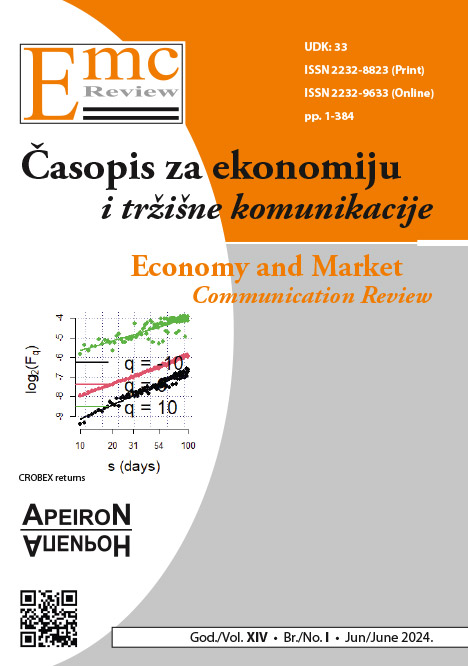INFLUENCE OF INFLATION ON INVESTMENTS IN THE REPUBLIC OF SRPSKA
DOI:
https://doi.org/10.7251/EMC2401291SKeywords:
inflation, foreign direct investment, domestic investment, Republic of Srpska, economic policyAbstract
The aim of this research is to analyze the impact of the inflation rate on foreign direct investments (FDI) and domestic investments in the Republic of Srpska and to determine which of these investments is more affected by inflation. The methods used in the research include quantitative data analysis through regression models, utilizing time series data on inflation rates, foreign direct investments, and domestic investments from 2000 to 2023. Data were collected from official sources such as the Statistical Office of the Republic of Srpska and the Central Bank of Bosnia and Herzegovina. The main finding of the research indicates that inflation has a statistically significant negative impact on foreign direct investments, while the impact on domestic investments is less pronounced. This difference may be due to the fact that foreign investors are more sensitive to macroeconomic factors such as inflation, whereas domestic investors may be more influenced by local economic conditions and the availability of capital. The research concludes that stable inflation policies can play a crucial role in attracting foreign investments, while additional factors such as improving the business environment and access to financing are necessary to stimulate domestic investments. Research on the impact of inflation on foreign direct investments (FDI) and domestic investments in the Republic of Srpska for the period from 2019 to 2023 showed unexpected results that disproved the first set of hypotheses and proved the third. However, the results of the regression analysis showed that the positive coefficient for FDI (0.021) suggests that an increase in FDI can slightly increase inflation, while the coefficient for domestic investment (0.020) also indicates a positive impact of inflation on domestic investment. Standardized coefficients (Beta) show that domestic investments (0.557) have a greater relative impact on inflation compared to FDI (0.428),These findings can help economic policymakers in the Republic of Srpska formulate strategies that balance inflation and encourage both types of investments, thereby promoting economic growth and development in the region.
